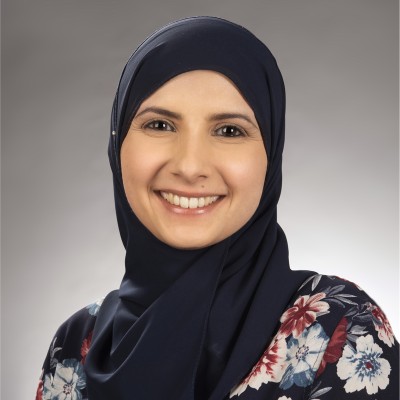Health care in Canada is reaping benefits from artificial intelligence, but more businesses need to adopt AI
Artificial intelligence is already providing numerous benefits to health care in Canada, experts told the Scale AI ALL IN conference in Montreal.
AI is being used in everything, from creating new drugs and optimizing home care to empowering research teams and designing clinical trials.
 “AI has proven valuable for patients and the health care force working on the ground,” said Kathy Malas (photo at right), director of research, innovation and learning at the Integrated Health and Social Services Center (CISSS) of Montérégie-Ouest. “I think the next step is let’s continue [this effort]. Adoption is still a challenge.”
“AI has proven valuable for patients and the health care force working on the ground,” said Kathy Malas (photo at right), director of research, innovation and learning at the Integrated Health and Social Services Center (CISSS) of Montérégie-Ouest. “I think the next step is let’s continue [this effort]. Adoption is still a challenge.”
It is also important, the experts said, to have a “sovereign” AI approach that uses high-performance computer power, data centres and cloud computing service providers in Canada, rather than rely mainly on foreign-based cloud services.
 “Unfortunately, a lot of our Canadian businesses still use U.S., as well as other jurisdictions’, data centres,” said Hessie Jones (photo at left), contributing writer at Forbes and an investor and startup founder who writes about AI and transformation. “The risk to innovation is actually keeping our innovation in Canada.”
“Unfortunately, a lot of our Canadian businesses still use U.S., as well as other jurisdictions’, data centres,” said Hessie Jones (photo at left), contributing writer at Forbes and an investor and startup founder who writes about AI and transformation. “The risk to innovation is actually keeping our innovation in Canada.”
At the same time, Jones said, “we’re seeing risk aversion that’s emblematic across our business communities, which actually stifles revenue opportunities for these companies.”
Canada has the advantages of clean power and temperate weather, which helps cool servers, to support efficient data centres, said Patrice Bédard, vice-president, artificial intelligence at Quebec City-based Micro Logic, a Canadian pioneer in cloud computing.
“Data centres are a key part of [having] a sovereign AI infrastructure,” he said. “We need to explain and raise awareness how digital sovereignty is important in Canada, how it helps companies monitor risk and our compliance moving forward.”
 Griffin Lacey (photo at right). Guelph, Ont.-based manager, solutions architect for California-headquartered computer chips manufacturer NVIDIA, said the core driver of Canadian data centre utilization is getting a greater number of businesses in Canada to adopt more AI technologies.
Griffin Lacey (photo at right). Guelph, Ont.-based manager, solutions architect for California-headquartered computer chips manufacturer NVIDIA, said the core driver of Canadian data centre utilization is getting a greater number of businesses in Canada to adopt more AI technologies.
“Canada is such a fantastic world-renowned leader in AI research, but I think we lag behind in AI adoption in enterprise,” he said.
Canadian businesses that want to build their own AI models using their own data need their high-performance computing to be close to their data, to achieve computational efficiency during training, Lacey said. “That’s going to drive demand for compute in Canada.”
In contrast, he said, businesses taking their AI training models and deploying them in production, if they’re using cloud services, typically will need to wait to get a response back from the cloud about their AI model’s performance.
“They’re faced with this dilemma: Do I use whatever [compute power] I can get my hands on in Canada?” Lacey said.
That sometimes means using an older GPU (graphics processing unit, the core of advanced AI development), which is still going to be functional but might not give companies enough state-of-the-art performance to be market-competitive, he added.
“So you need your compute to be close to where your users are. If your users are largely in Canada, you need your data centres to be largely in Canada,” Lacey said.
Bédard said when it comes to academic research in AI, “Canada’s really at the forefront, if not the [global] leader. But for the next stage, we’ve got to go toward commercialization and have industrial-scale [AI infrastructure] to support our businesses.”
Driving AI adoption in business sectors
 Chirag Patel (photo at right), senior director of AI product management at California-based Qualcomm Technologies, said there is increasing AI adoption across all business sectors, including in consumer electronics, Internet Of Things devices and manufacturing logistics.
Chirag Patel (photo at right), senior director of AI product management at California-based Qualcomm Technologies, said there is increasing AI adoption across all business sectors, including in consumer electronics, Internet Of Things devices and manufacturing logistics.
“We see broad adoption starting to pick up, and it’s already been there for the last couple of years,” he said.
For example, a lot of Qualcomm’s clients are using AI to develop prototypes of products faster, reducing a process that used to take a year to a few months.
 Doneyli De Jesus (photo at left), Montreal-based principal AI and data advisor at Montana-headquartered cloud data platform Snowflake, said he works with customers in building their customized AI solutions.
Doneyli De Jesus (photo at left), Montreal-based principal AI and data advisor at Montana-headquartered cloud data platform Snowflake, said he works with customers in building their customized AI solutions.
He said he sees a lot of momentum in adopting AI in the retail sector, because profit margins are typically thin and companies are utilizing generative AI to automate many processes and improve operational efficiencies.
For example, AI is being used to identify defects in garments, which De Jesus said is one of the biggest cost drainers for stores and retail companies because of returned items.
The AI solution enables a customer to take a photo of the garment, which is analyzed and can automatically identify if there is, in fact, a defect in the garment. If so, the AI flags an automatic refund to the customer.
De Jesus said another sector increasingly adopting AI is telecommunications, especially at call centres, in summarizing calls, identifying customer issues and processing data, and making this information available quickly to call centre agents.
Health care is another big area that is seeing growing adoption of AI technologies, especially in empowering doctors, nurses and other health care professionals to provide better and more care, De Jesus said.
Qualcomm helped a health care organization to implement an AI solution that reduced by 25 percent the amount of time it took doctors to treat patients, he noted. AI can automate the doctor-patient visitation process and generate data, from the time the patient enters the doctor’s office through to prescribing treatments and follow-up care.
AI helping doctors, nurses, patients, caregivers and health researchers
A Scale AI ALL IN panel session titled “AI Powering The Healthcare Sector” presented six companies using their AI solutions to improve various aspects of health care and health research.
Valence Labs has an AI-powered platform for designing new small-molecule drugs. The company was acquired last year by Utah-based Recursion Pharma, but still operates in Montreal and is headquartered at Mila – Quebec’s AI Institute.
 “Every week, we do around 2 million experiments, generating a lot of data to understand how biology acts. We use the data to build large models or maps of biology,” said Therence Bois (photo at right), vice-president of strategy and translational research at Recursion.
“Every week, we do around 2 million experiments, generating a lot of data to understand how biology acts. We use the data to build large models or maps of biology,” said Therence Bois (photo at right), vice-president of strategy and translational research at Recursion.
Alaya Care in Montreal has developed an AI platform for the home care industry, which has a shortage of workers. The platform makes the entire home care process more efficient and optimized, from patient intake and care giver routing through to billing.
The company’s AI large language model can obtain a summary of the patient’s care, along with caregiver’s notes, and post this information in the language of the family.
.jpg) “We optimize the time for home care workers, so they can spend more time with clients,” said Naomi Goldapple (photo at left), senior vice-president, data and intelligence at Alaya Care.
“We optimize the time for home care workers, so they can spend more time with clients,” said Naomi Goldapple (photo at left), senior vice-president, data and intelligence at Alaya Care.
Jaide Health is building, essentially, an AI-powered “Google translate” platform for health care systems, to enable patients and clinicians to converse in the language of their choice, without the need of a professional interpreter.
The Boston-based company is just launching its platform, with a pilot starting in October in Canada. Jaide Health will be working with Heart Pharmacy, a family-owned pharmacy chain based in Vancouver, providing interpretative services for a vaccination program for hospital staff.
 “Hospitals live and die on workflow,” so the key is to integrate the AI solution into health care workers’ and hospitals’ existing workflows, said Julie Wilner (photo at right), a registered nurse and co-founder and chief operating officer of Jaide Health.
“Hospitals live and die on workflow,” so the key is to integrate the AI solution into health care workers’ and hospitals’ existing workflows, said Julie Wilner (photo at right), a registered nurse and co-founder and chief operating officer of Jaide Health.
“It doesn’t matter how good your technology is. If it’s not integrated into the workflow perfectly, things are going to break. Workflow kills technology,” Wilner said.
Google Deepmind, which has research centres in Canada, is doing research at the intersection of health, biomedicine and designing large AI models, exploring AI’s potential for improving health care, optimizing efficiency and workflow for health care workers, and accelerating positive impacts for patients.
 “The goal is to have democratized access to high-quality [care] and personalized medicine for all the patients,” said Shekoofeh Azizi (photo at left), research scientist at Google Deepmind.
“The goal is to have democratized access to high-quality [care] and personalized medicine for all the patients,” said Shekoofeh Azizi (photo at left), research scientist at Google Deepmind.
 René Caissie (photo at right), CEO and co-founder of California-based Medeloop.ai and adjunct professor at Stanford University School of Medicine, said his company has developed AI agents that can help research teams move faster in going through massive datasets.
René Caissie (photo at right), CEO and co-founder of California-based Medeloop.ai and adjunct professor at Stanford University School of Medicine, said his company has developed AI agents that can help research teams move faster in going through massive datasets.
“We’re going to be reaching about 300 million patients’ records on our platform in the next couple of months,” he said.
Caissie said the AI agents are able to democratize research by providing even small research teams with a powerful team member – the AI agent.
Medeloop.ai worked with a health network on a dataset, comprised of structured and unstructured data, of 1.2 million patient records. If any of the principal investigators or other researchers wanted to ask this dataset a question – for example, does lipoprotein correlate to a stroke? – the process of getting an answer would take up to a year or two years in certain cases, Caissie said.
Now, with the company’s AI agent, researchers can simply enter a natural language prompt, and the AI is able to execute, sequentially, every task required to get the answer promptly and generate a summary.
“This group [of researchers] told us they were conducting research 40,000 times faster by using our AI agent,” Caissie noted.
 Andrea Lodi (photo at right), co-founder and scientific director of Montreal-based IVADO Labs, said the company is focused on bringing research into clinical practice and using AI optimization in health care.
Andrea Lodi (photo at right), co-founder and scientific director of Montreal-based IVADO Labs, said the company is focused on bringing research into clinical practice and using AI optimization in health care.
IVADO employed AI during the COVID-19 pandemic to find the right test kit at the right time and optimize delivery of reagents for these test kits to hospitals.
The company also utilizes AI to automate colonoscopy testing, with a computer vision algorithm that detects early signs of disease in real-time with very high accuracy, Lodi said.
AI also can efficiently schedule surgeries and predict patients’ recovery times, and optimize the flow of supplies for anything that happens in a hospital, he added.
Effective AI requires extensive use of data, Lodi said. “Data-driven optimization is key [to] making everything more efficient and effective.”
R$
| Organizations: | |
| People: | |
| Topics: |
Events For Leaders in
Science, Tech, Innovation, and Policy
Discuss and learn from those in the know at our virtual and in-person events.
See Upcoming Events
You have 0 free articles remaining.
Don't miss out - start your free trial today.
Start your FREE trial Already a member? Log in
By using this website, you agree to our use of cookies. We use cookies to provide you with a great experience and to help our website run effectively in accordance with our Privacy Policy and Terms of Service.





